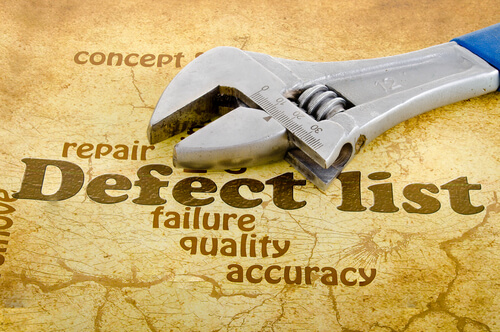Buyers often assume newly build homes, condos, and apartments should be perfect, but even new builds can have defects – design, materials, carpentry, appliance installation and even construction itself can be faulty. If this happens after you move in, buyers often wonder what rights they have in New York to have the problems fixed and what steps to take. Ideally, you discover defects prior to purchase. However, a final inspection may not uncover all defects before closing so it’s important to understand your rights against the builder days, weeks, or even years later. MOWK law can help you in either situation.
Housing Merchant Implied Warranty
New York has laws creating a new construction warranty – the Housing Merchant Implied Warranty. It doesn’t need to be written into the sales contract for single family homes and multi-unit residential building units five stories tall or less on land you didn’t own before construction.
Generally, construction defects are covered for one year after the date the title passed to the first new owner – known as the warranty date. Ventilation, plumbing, heating and cooling, and electrical systems are covered for two years following the warranty date. Material defects are covered for six years. You must notify the builder in writing no later than 30 days after the warranty period expires and before filing a lawsuit. The builder must also be allowed a reasonable opportunity to inspect, test, and repair the defect. You must notify the builder of the defect before filing suit, but don’t have to allow them the time to inspect, test, and repair. You may also file suit up to one year after the warranty period ends or within four years of the warranty date after you’ve notified the builder in a timely manner.
You may also pursue alternative dispute resolution such a mediation to try and reach a settlement. In New York, however, builders may not require binding arbitration in any limited warranting replacing or modifying the Housing Merchant Implied Warranty and must pay for voluntary arbitration.
How Do You Recover?
If you sue, whether a defect exists is evaluated by the level of skillful workmanship standard within the community. Expert testimony and local building ordinance standards are helpful evidence to present. If you establish that a defect is present, you may typically recover damages equivalent to the cost of repairing or replacing the defect and the cost to repair any damage to the home the warranty work causes.
New York Real Estate Attorney
Buying property in New York is stressful even without the added headache of dealing with an unexpected defect in your brand-new home. If you’ve discovered an unpleasant surprise, the experienced New York real estate attorneys at MOWK Law can help you pursue remedies to make sure you get what you paid for from your builder. Contact us today to get your questions answered and make sure someone is looking out for your best interests.

